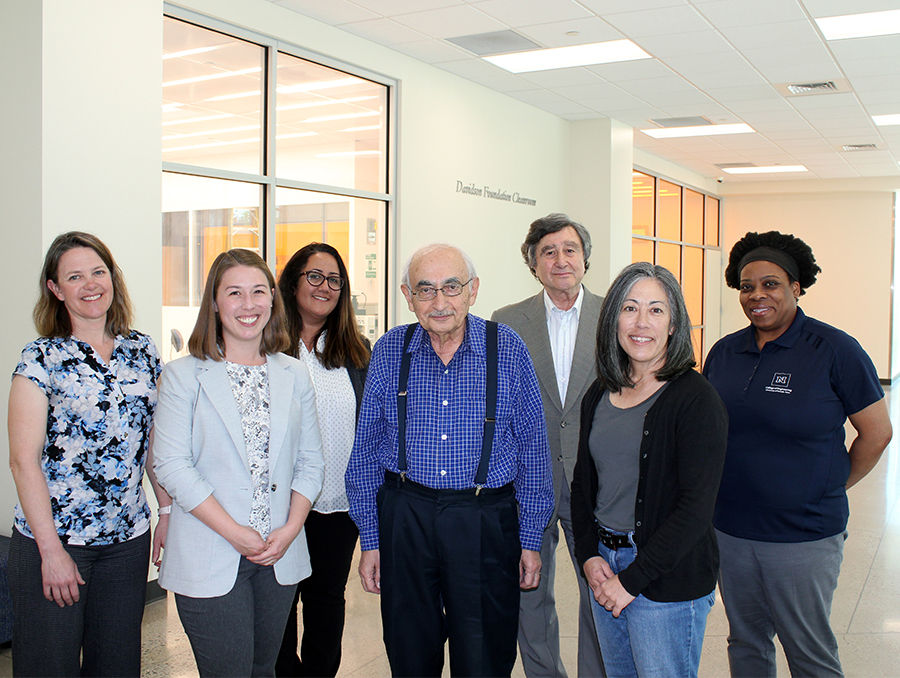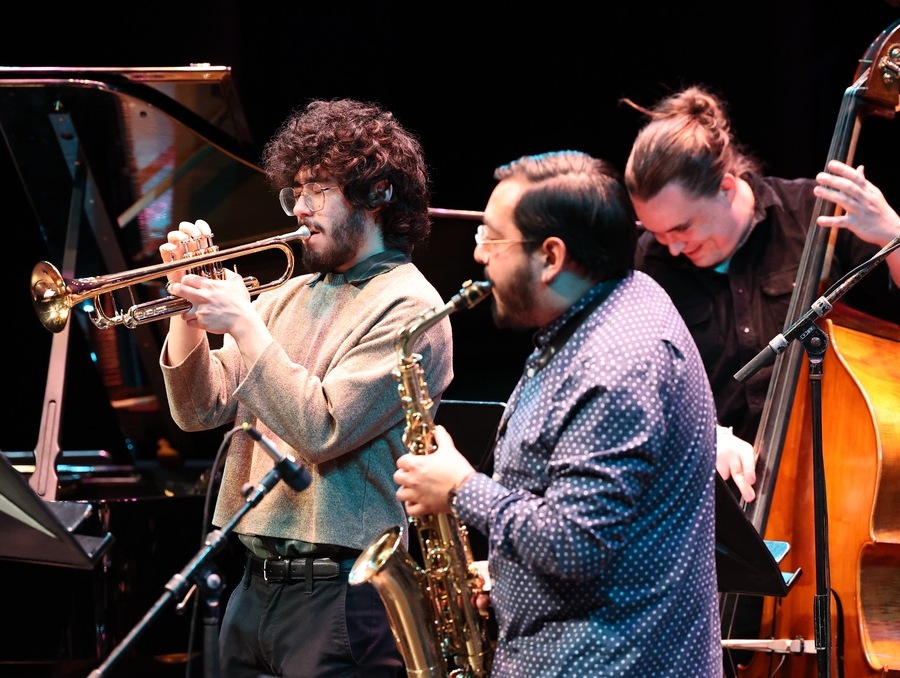Ten journalists from Hong Kong visited the Donald W. Reynolds School of Journalism Feb. 6 to glean information about the First Amendment and journalism school curricula. The group made its only visit to a journalism school Feb 3-11 during the Hong Kong Journalist Fellowship Program study tour of United States judicial systems and the Reynolds National Center for the Courts and Media.
"The Reynolds School of Journalism prepares students to practice journalism on multiple platforms," said Rosemary McCarthy, academic chair for the J-School. "Our students are now consistently taking both print and broadcast courses to acquire the training that will allow them to work professionally in a dynamic industry."
The journalists and School of Journalism faculty discussed changes imposed on the media by technological advances in electronic and broadcast mediums.
"Gannett, the nation's largest newspaper publishing company, is retraining print reporters to gather information and distribute it on multiple platforms," said Warren Lerude, journalism professor. "In the most dramatic way, newspapers are finding ways to get information, to all people, in a medium that the consumer wants. So by extension, journalism schools must prepare students to contribute to the profession."
The visiting journalists described intense debates about regulations that are inconsistently applied in Hong Kong to print, broadcast, and electronic mediums.
"We do not regulate the Internet because it is impossible and it violates our support for free enterprise," said Daniel Fung, a former media regulator in Hong Kong. "We regulate certain industry players and not others, which seems unfair when the lines between print, broadcast, and electronic media are blurring." Fung will brief the American Bar Association, Feb. 9.
Sandra Keyes, journalism professor, observed that this phenomenon is raising the question of journalistic ethics. "Professional journalists are governed by a code of ethics. Bloggers aren't necessarily bound by a code and that is influencing the way in which print and broadcast mediums report news."
"This is changing the standard of what's right and wrong, and it affects other professions," said Gary Hengstler, Reynolds National Center for Courts and Media director. "The concept of justice has evolved into a negative connotation of ‘just us,' which is prompting the justice system to examine itself to ensure that it serves the people as the Constitution intended."
"I see the development of alternatives such as Black Entertainment Television and Hispanic media a result of mainstream media exclusion, said Paul Mitchell, recruitment and retention coordinator. "People of color do not feel motivated to participate in media. They are voiceless, powerless, and have been excluded from the industry."
The federation of journalists will conclude their visit to the U.S., Feb. 11 after visiting the Supreme Court Press Office and the American Bar Association.
NevadaToday











